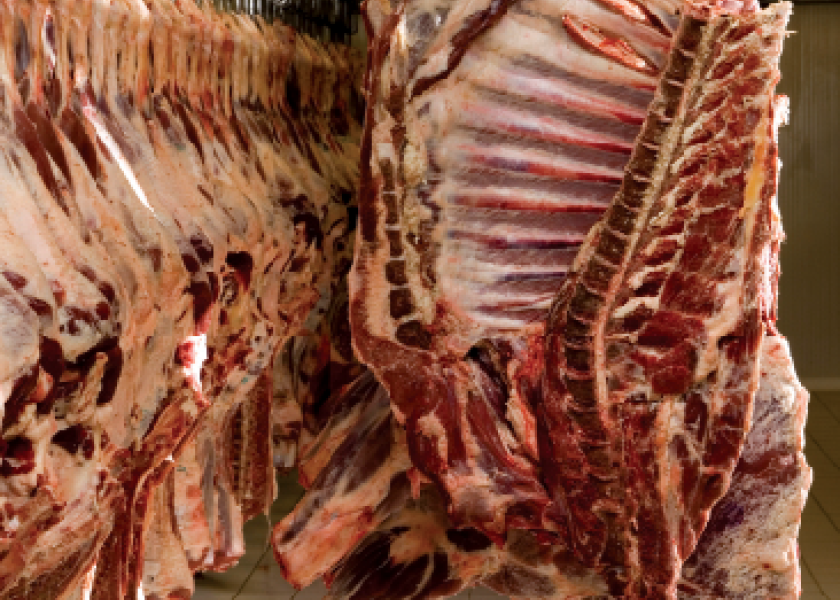Labeling Mechanically Tenderized Meat Products

Labeling mechanically tenderized meat products
By Jeannine Schweihofer, Michigan State University
The U.S. Department of Agriculture (USDA) Food Safety Inspection Service (FSIS) issued a proposed rule for needle or blade tenderized beef products. The proposal states that "mechanically tenderized" be included in the product name. In addition to the product name, cooking instructions will also be required to indicate that mechanically tenderized beef be cooked to a minimum internal temperature of 145 degrees Fahrenheit and then allowed to rest for three minutes.
Mechanically tenderizing meat is a process done to an intact subprimal of meat where dozens of blades or needles are sent through the muscle surface hundreds of times to improve tenderness by breaking apart connective tissue and/or deliver an injection solution. This process improves product consistency and increases tenderness.
We are typically not as concerned with internal temperatures of whole muscle products, like steak, because bacteria cannot reach beyond the surface. But, according to Michigan State University Extension, mechanical tenderization makes it possible for bacteria to move to the center of a whole muscle product. The proposed rule addresses the possibility of pathogens being driven from the surface into the internal portions of a muscle that becomes the inside of a steak. Very few outbreaks – six since 2009 – have been associated with tenderized steaks. Of those outbreaks, there were minimal hospitalizations (32) and no deaths. Four of the six outbreaks were associated with marinade or injection of a flavoring that was done in addition to the blade or needle tenderizing.
Although this requirement for labeling would bring more transparency to consumers, it does not necessarily prevent a foodborne illness from occurring with a mechanically tenderized meat product. One researcher from Kansas State University indicates that the ideal way to improve food safety of mechanically tenderized meat products is to treat subprimals using validated interventions (ie. organic acid spray) before the muscle goes through injection or tenderization. The researcher indicates that restaurants, which prepare a large proportion of the mechanically tenderized product might not always follow cooking recommendations. Furthermore, consumers may not fully understand the difference between a mechanically tenderized product and traditional meat cuts. There is no guarantee that consumers will follow the cooking recommendations any more than a restaurant will.
The comment period on this proposed rule is open until Aug. 9, 2013, and can be made to USDA FSIS via instructions given in the proposed rule and must include FSIS 2012-0013 in the communication.







